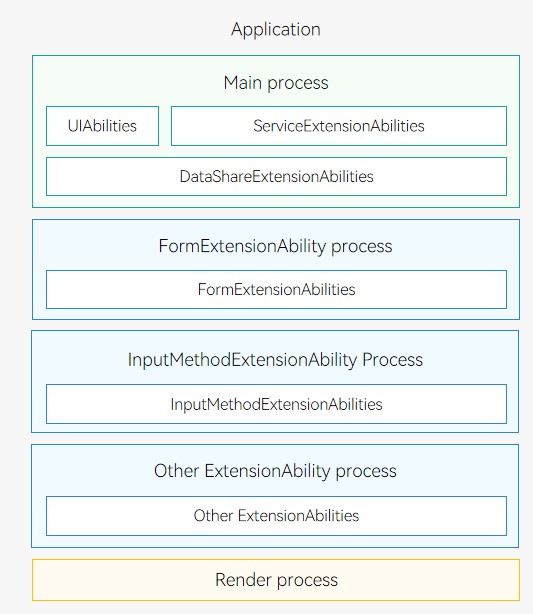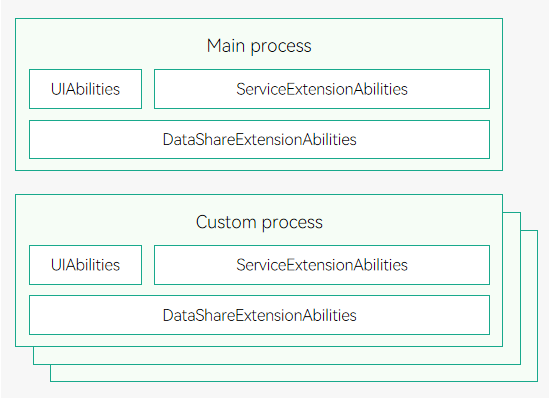Process Model (Stage Model)
The OpenHarmony process model is shown below.
-
All UIAbility, ServiceExtensionAbility, and DataShareExtensionAbility components of an application (with the same bundle name) run in an independent process, which is Main process in green in the figure.
-
The ExtensionAbility components of the same type (except ServiceExtensionAbility and DataShareExtensionAbility) of an application (with the same bundle name) run in an independent process, which is FormExtensionAbility process, InputMethodExtensionAbility process, and other ExtensionAbility process in blue in the figure.
-
WebView has an independent rendering process, which is Render process in yellow in the figure.
Figure 1 Process model

NOTE
- You can create ServiceExtensionAbility and DataShareExtensionAbility only for system applications.
- To view information about all running processes, run the hdc shell command to enter the shell CLI of the device, and run the ps -ef command.
A system application can apply for multi-process permissions (as shown in the following figure) and configure a custom process for an HAP. UIAbility, DataShareExtensionAbility, and ServiceExtensionAbility in the HAP run in the custom process. Different HAPs run in different processes by configuring different process names.
Figure 2 Multi-process

OpenHarmony provides two inter-process communication (IPC) mechanisms.
-
Common Events: This mechanism is used in one-to-many communication scenarios. Multiple subscribers may receive events at the same time.
-
Background Services: This mechanism is implemented through ServiceExtensionAbility.